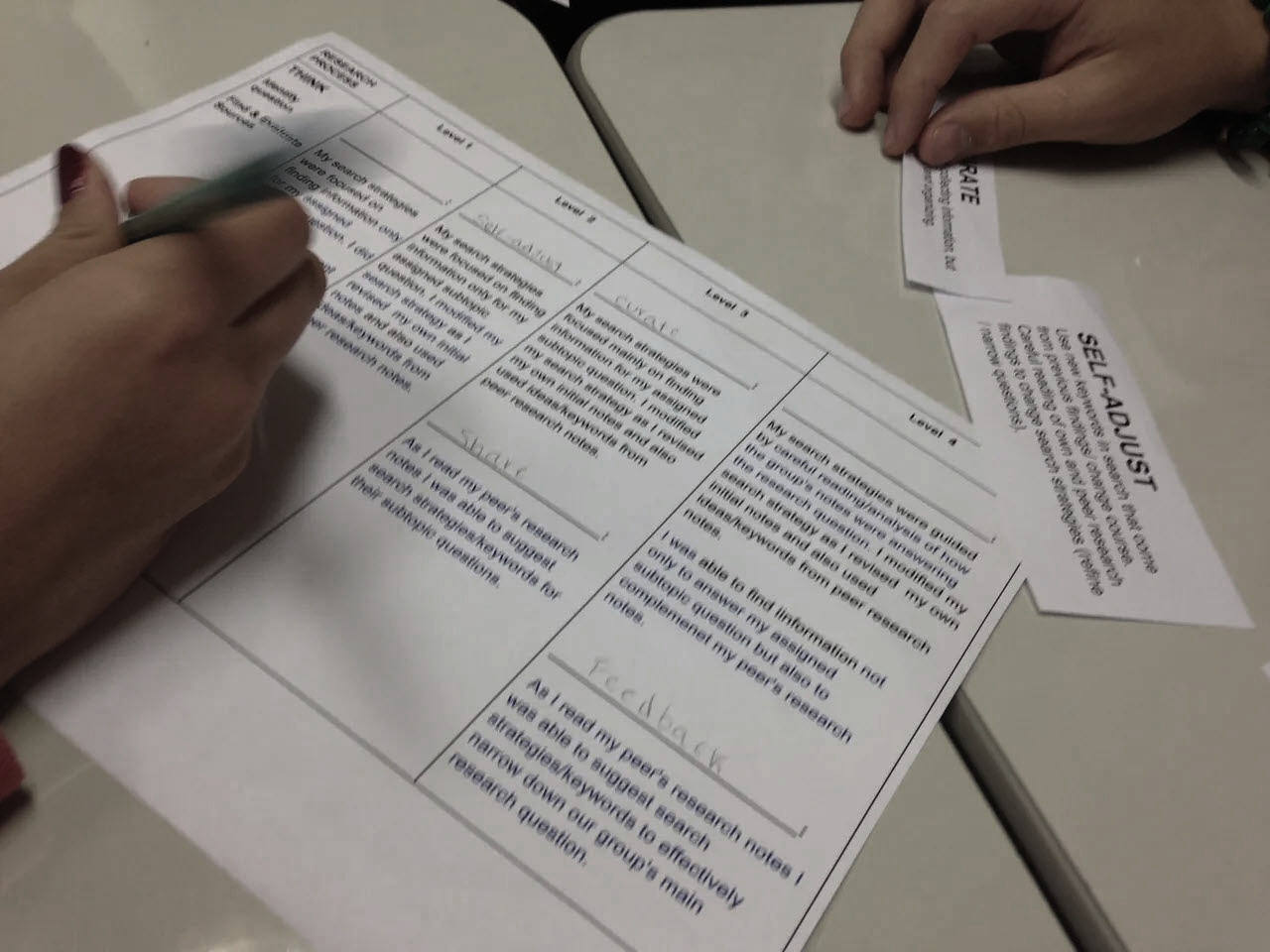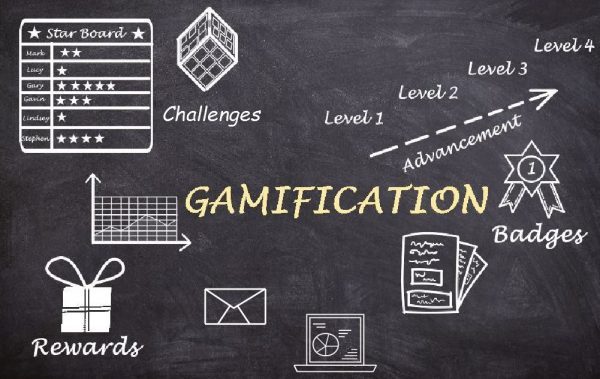The directions for Assignment 1B were to analyze the given Reflective Practice Rubric by unpacking the learning expectations by addressing specific questions. Unpacking the rubrics was to be used to assess our learning by clarifying the criteria and specific skills we are expected to acquire in all courses throughout the program.
It will allow us to self-assess during the learning process. The criteria for our success found in the assignment level descriptors (highly developed, developed, emerging, and initial) define in this assignment the expectations of achievement.
This activity had us analyze the differences in criteria between levels. We were reminded to use the academic language of the rubric when responding to the analysis prompt to ensure that all elements in the criteria were addressed.
Reflective Practice Rubric
Highly developed: Provides convincing evidence that demonstrates depth, and knowledge of content and explains connections made to real-world situations. Goes beyond expectations.
Developed: Provides evidence that demonstrates an understanding of the content that meets the criteria but lacks the depth of knowledge and makes general connections without explanations. All components required are met.
Emerging: Provides partial evidence that demonstrates the required depth in all criteria of the assignment. The response may be unsupported, flawed, or missing elements.
Initial: Lacking the evidence required in all criteria of the assignment. The evidence presented may be minimal, unsupported, inadequate, or missing.
Depth of Reflection
Highly Developed: Response is highly developed and demonstrates an in-depth reflection, including connections made to, personalization of, the theories, concepts, and/or strategies presented in the course materials to date. Viewpoints and interpretations are insightful and well-supported. Clear, detailed examples are provided, as applicable.
Developed: Response is developed and generally demonstrates a reflection on, and personalization of, the theories, concepts, and/or strategies presented in the course materials to date. Viewpoints and interpretations are supported. Appropriate examples are provided, as applicable.
Emerging: Response is emerging and demonstrates a partial reflection on, and personalization of, the theories, concepts, and/or strategies presented in the course materials to date. Viewpoints and interpretations are partially unsupported or supported with flawed arguments. Examples, when applicable, are not provided or are irrelevant to the assignment.
Initial: Response demonstrates an initial lack of reflection on, and personalization of, the theories, concepts, and/or strategies presented in the course materials to date. Viewpoints and interpretations are missing, inappropriate, and/or unsupported. Examples, when applicable, are not provided.
Components
Highly Developed: Response is highly developed, including all components, and exceeds all requirements indicated in the instructions. Each question or part of the assignment is addressed thoroughly. All attachments and/or additional documents are included, as required.
Developed: Response is developed, including all components, and meets the requirements indicated in the instructions. Each question or part of the assignment is addressed. All attachments and/or additional documents are included, as required.
Emerging: Response is emerging yet missing some components and only partially meets the requirements indicated in the instructions. Some question or part of the assignment is addressed. Some/partial attachments and/or additional documents, if required, are missing or unsuitable for the purpose of the assignment
Initial: Response demonstrates initial effort yet lacks components and/or does not address the requirements indicated in the instructions. Many parts of the assignment are addressed minimally, inadequately, and/or not at all.
Structural
Highly Developed: Writing is highly developed, clear, concise, and well organized, with excellent sentence/paragraph construction. Thoughts are expressed in a coherent and logical manner. There are no errors in spelling, grammar, or syntax errors per submission.
Developed: Writing is developed, clear, and well organized with excellent sentence/paragraph construction. Thoughts are clearly expressed in a coherent and logical manner. There are no more than three spelling, grammar, or syntax errors, and the errors do not distract from contextual meaning.
Emerging: Writing is emerging, partially clear, and well organized with excellent sentence/paragraph construction. Thoughts are expressed in a partially coherent and logical manner. There are no more than 5 spelling or syntax errors, and some errors distract from contextual meaning.
Initial: Writing demonstrates initial skills but is lacking in clarity and is disorganized. Thoughts ramble and make little sense. There are numerous spelling, grammar, or syntax errors throughout the response, distracting contextual meaning.
Describe the difference in level descriptors between highly developed and developed. What are the keywords and specific criteria that differentiate one level from the other?
Highly developed responses provide convincing evidence and demonstrate a depth of knowledge not found in a merely developed response. In a highly developed response, connections are explained and made to real-world situations and go beyond expectations, whereas a developed response makes only general connections that are not explained, and component requirements are met but not exceeded.
Describe the difference in level descriptors between developed and emerging. What are the keywords and specific criteria that differentiate one level from the other?
Where a developed response provides evidence that demonstrates an understanding of the content that meets the criteria, an emerging response provides only partial evidence, and the response may be unsupported, flawed, or missing elements.
Describe the difference in level descriptors between emerging and initial. What are the keywords and specific criteria that differentiate one level from the other?
While an emerging response provides partial evidence that demonstrates the required depth in all criteria of the assignment and may be unsupported, flawed, or missing elements, an initial response lacks the evidence required in all criteria of the assignment, and the evidence presented is minimal and inadequate, in addition to being unsupported or missing.
Describe the criteria differences in the Depth of Reflection section, in the level descriptors, between highly developed and developed using the keywords and specific criteria that differentiate one level from the other?
A highly developed response provides an in-depth reflection where viewpoints and interpretations are insightful and well-supported, and clear, detailed examples are provided. In a developed response, only a general reflection is demonstrated, and viewpoints and interpretations are merely supported with appropriate examples, as applicable.
Describe the criteria differences in the Components section, in the level descriptors, between highly developed and developed using the keywords and specific criteria that differentiate one level from the other?
A highly developed response includes all components and exceeds all requirements indicated in the instructions. Each part of the assignment is addressed thoroughly, while a developed response merely meets the requirements indicated in the instructions and addresses each part of the assignment, if not quite so thoroughly.
Describe the criteria differences in the Structural section, in the level descriptors, between highly developed and developed using the keywords and specific criteria that differentiate one level from the other?
Structurally, the writing in a highly developed response is clear, concise, and well-organized, with excellent sentence/paragraph construction. Thoughts are expressed in a coherent and logical manner with no errors in spelling, grammar, or syntax errors per submission. The writing in a developed response is clear and well organized, if not concise, and there are no more than three spelling, grammar, or syntax errors, and the errors do not distract from contextual meaning.
Unpack the highly developed criteria elements in the “Depth of Reflection”
The response is highly developed and demonstrates an in-depth reflection, including connections made to, and personalization of, the theories, concepts, and/or strategies presented in the course materials to date. Viewpoints and interpretations are insightful and well-supported. Clear, detailed examples are provided, as applicable.
List each element you will need to address to earn the highly developed score:
- In-depth reflection that includes connections to relevant theories, concepts, and/or strategies presented in the course material.
- Express insightful viewpoints and interpretations that are well supported.
- Give clear and detailed examples, as applicable.
Unpack the highly developed criteria elements in the “Components”
The response is highly developed, including all components, and exceeds all requirements indicated in the instructions. Each question or part of the assignment is addressed thoroughly. All attachments and/or additional documents are included, as required.
List each element you will need to address to earn the highly developed score:
- Include all components and exceed all requirements indicated in the instructions.
- Address each question or part of the assignment thoroughly.
- Make sure all attachments and/or additional documents are included, as required.
Unpack the highly developed criteria elements in the “Structure”
Writing is highly developed, clear, concise, and well organized, with excellent sentence/paragraph construction. Thoughts are expressed in a coherent and logical manner. There are no more than three spelling, grammar, or syntax errors per page of writing.
List each element you will need to address to earn the highly developed score:
- Write clearly and concisely in a well-organized manner.
- Express thoughts in a coherent and logical manner.
- Make sure there are no errors in spelling, grammar, or syntax



